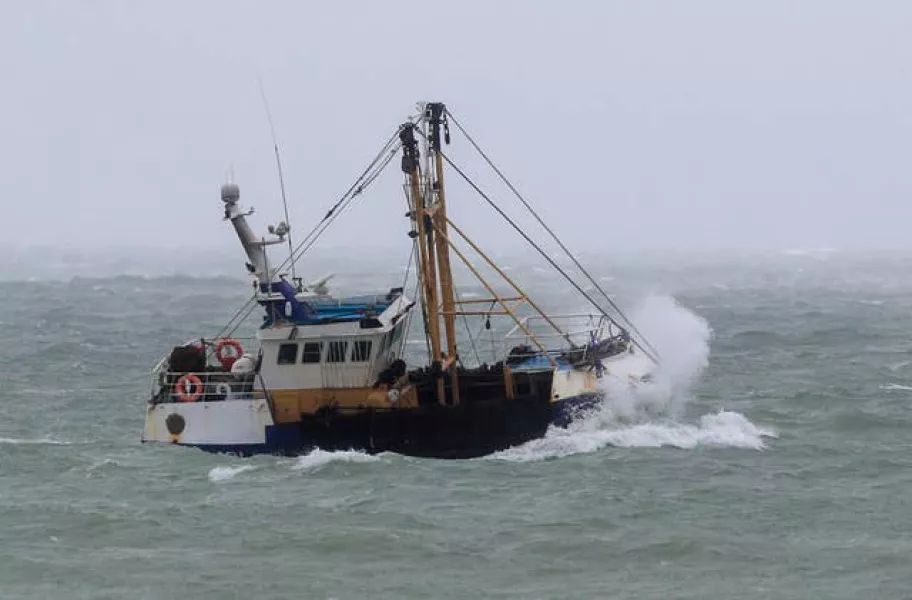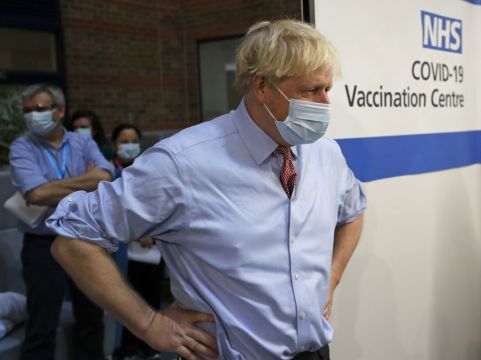British prime minister Boris Johnson has warned that talks with the European Union on a post-Brexit trade deal were proving “very tricky” ahead of a crunch meeting with Brussels’ top official.
Mr Johnson said he was still hopeful about reaching a deal but it was proving “very, very difficult” to make progress.
Later this week Mr Johnson will head to Brussels for face-to-face talks with European Commission chief Ursula von der Leyen in an attempt to salvage a deal, with time running out before the current trading arrangements expire at the end of the month.
Mr Johnson said he hoped the “power of sweet reason” would triumph but Brussels had to accept there were limits to what terms the UK would be prepared to accept.
Talks have faltered on the issues of fishing rights, the “level playing field” measures aimed at preventing the UK undercutting the EU on standards and state subsidies, and the way that any deal would be governed.
In a message to Brussels, Mr Johnson said: “Our friends have just got to understand the UK has left the EU in order to be able to exercise democratic control over the way we do things.
“There is also the issue of fisheries where we are a long way apart still.
“But hope springs eternal, I will do my best to sort it out if we can.”
Here is the joint statement just now from @BorisJohnson and @vonderleyen on the situation in our talks with the EU. pic.twitter.com/dYYwAI20Y8
— David Frost (@DavidGHFrost) December 7, 2020
Advertisement
Mr Johnson’s trip to Brussels is seen as a make-or-break moment for the process after months of talks led by David Frost and the EU’s Michel Barnier.
The prime minister acknowledged that there may be a point where it is “time to draw stumps” and accept that a deal is impossible.
“There are just limits beyond which no sensible, independent government or country could go and people have got to understand that.”
He again insisted the UK will “prosper mightily” with or without a trade deal with the European Union, despite grim warnings from the budget watchdog and the governor of the Bank of England about the impact.
Long-term damage
Meanwhile Minister for Foreign Affairs Simon Coveney warned on Monday night that the mood is starting to shift among EU leaders away from securing the compromises necessary to reach an agreement to preparing for a no-deal outcome
Mr Coveney also spoke about “a great deal of frustration on the EU side, not just within the EU negotiating team ... but also across member states” and said that many EU foreign ministers were becoming resigned to a no-deal.
The UK's Office for Budget Responsibility has suggested that a no-deal situation could wipe 2 per cent off Britain's gross domestic product, a measure of the size of the economy, in 2021.
Germany’s European affairs minister, Michael Roth, said “political will in London” was needed to get a deal.
“Let me be very clear, our future relationship is based on trust and confidence,” he said.
“It’s precisely this confidence that is at stake in our negotiations right now. We want to reach a deal, but not at any price.”
No day has yet been fixed for Mr Johnson’s meeting with Ms von der Leyen, but it is expected later this week and follows a lengthy telephone call on Monday.

The Times reported that fisheries negotiations have continued to stall over how long any transition period would be for European trawlermen to adjust to agreed changes to fishing rights.
The newspaper said the EU wants a 10-year grace period, while the UK wants that pegged back to three.
Leaders of the EU’s 27 member states are due to gather in Brussels on Thursday for a two-day summit, potentially giving political impetus for a deal.







